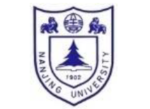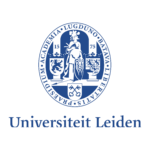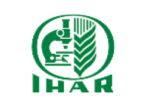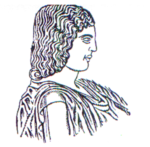Our Partners
Click on a Partner to show more!

The Norwegian Institute for Water Research (NIVA) is a leading environmental research centre in Norway with an internationally oriented research programme. We have worked in over 70 countries and coordinated several projects under the Joint Programming Initiatives and participated in 23 H2020 projects. Since 2016 NIVA has pioneered research on fate and toxicity of MNPs, hosting state-of-the- art facilities and infrastructures for analyses, ecotoxicity tests and modelling. We provided a seminal contribution to the development of research on MNPs in terrestrial and agricultural systems by validating analytical methods of MNPs in soils and assessing exposure of agricultural soils. The institute is ISO9001 and ISO17025 accredited. With 290 employees and an EU project support unit, NIVA has the operational capacity to undertake its research and coordination tasks in PAPILLONS.
NO
Coordinator, WP2 and WP6 Lead, contribution to WP1-WP5, Cross- cutting theme 2 lead
X
UCT is the largest academic institution of its kind in Central Europe with a history of almost 200 years. The Department of Food Analysis and Nutrition has available cutting-edge instrumentation and is accredited according to the International standard ISO/IEC 17025:2018 by the Czech Institute for Accreditation, a member of ILAC network. In addition to running accredited tests, activities also include, among others, (i) development/application of novel analytical methods for control of emerging threats (target screening); (ii) development/application of non-target screening strategies, including metabolomics fingerprinting/profiling followed by chemometric data processing aimed at food/feed/food supplements authentication; (iii) analysis of natural biologically active components; environmental pollutants; residues, processing contaminants and natural toxicants. The research team of UCT has participated in many international projects including 5th, 6th and 7th EC framework programs as well as HORIZON 2020, COST, and many others nationally funded research activities. UCT has the operational capacity to undertake its tasks in PAPILLONS.
CZ
WP2 and WP3 contributor
X
Forschungszentrum Jülich pursues cutting-edge interdisciplinary research on pressing issues facing society today, with significant competence in materials science and simulation, nanotechnology, information technology, and biosciences brain research. With more than 5,500 employees, Jülich – a member of the Helmholtz Association – is one of the large interdisciplinary research centres in Europe. The Institute of Bio- and Geosciences – Agrosphere (IBG-3) contributes with its work to a better understanding of hydrological and bio-geochemical processes in terrestrial systems. Investigations on the fate and behaviour of anthropogenic substances as well as on the elucidation of substance exchange processes in the soil-plant-atmosphere continuum and on the cycles of important substances are our focus. The existing gaps between small-scale process understanding and regional management are to be closed by a combination of experiments, modelling and innovative observation technologies. The Agrosphere Institute coordinates the German Terrestrial Enviromental Observatories network (TERENO). With our expertise FZJ has the operational capacity to undertake the research tasks in PAPILLONS.
DE
Contribution to WP2, implement of the lab trial with 14C labelled nanoplastic.
X
As one of the top 10 Chinese Universities, Nanjing University (NJU) has 31 schools, 147 Ph.D. programs with more the 35000 students (>13000 graduates, >3000 foreign students). NJU is honored by the presence of 32 academicians of Chinese Academy of Science and Chinese Academy of Engineering and hosts one National Laboratory, seven National Key Laboratories, and one National Engineering Centre in the field of science and technology. The School of the Environment (SoE) has 48 full professors, one National Key Laboratory and one National Engineering Centre for pollution control and resource reuse, and one National Key Discipline in environmental sciences. The SoE has three departments: Department of Environmental Science (24 professors), Department of Environmental Engineering (15 professors), and Department of Environmental Planning (9 professors). NJU has the operational capacity to undertake its tasks in PAPILLONS.
CH
Contribution to WP1 with regards to the production of radiolabeled MNP reference materials.
X
The iES Landau, Institute for Environmental Sciences at the University of Koblenz – Landau (UKL) was established in 2004 comprising now >160 scientists dedicated to various aspects of environmental and social sciences. UKL has a strong national and international research programme with lead roles in various projects. UKL contributed to research understanding fate and effects of nanoparticles in aquatic ecosystems and expanded to nano- and microplastics recently. UKL offers a broad range of unique mesocosm facilities, which will partly be used in PAPILLONS. Thus, UKL has the operational capacity to undertake its tasks in PAPILLONS.
DE
Contribution to WP2 with regards to the study of water driven transport of MNPs from soil to water ecosystems
X
Leiden University (1575) is a leading international research university, consistently ranking in the Top 100 according to the Academic Ranking of World Universities. The university has >30k students and >1600 academic staff (from >100 different nationalities). LEI participated in 220 FP7 projects, and to date LEI has been awarded >70 research projects worth >€50M within H2020. The Institute of Environmental Sciences (CML) is an institute of the Faculty of Science. Since 2015 CML is conducting research on NMPs, ranging from laboratory to field studies. CML was (among) the first to publish on the impact of NMP on terrestrial vascular plants (Bosker PI) and on nanoplastic uptake in plants (Nature Sustainability: Peijnenburg). We routinely perform effect assessment on anthropogenic stressors, including NMP, at different levels of biological organization, ranging from toxicogenomics (e.g. RNAseq and metabolomics) and bioinformatics (e.g. some aspects of AOP) to effects on populations and ecosystems. We have state-of-the-art facilities available, including imaging and mesocosm facilities as well as climate rooms. We are involved in several citizen science projects on plastic pollution, and actively publishes on this topic (Bosker, PI). LEI has the operational capacity to undertake its tasks in PAPILLONS.
NL
WP4 Lead (Contributor)
X
IHAR-NRI is the largest Polish research centre in the multi-disciplinary area of crop improvement, biotechnology, germplasm conservation and enhancement. Research agenda is focused on identification of genetic sources of the important agronomic traits and studies on their genetic control and methods of utilization, research on the mechanisms controlling crop resistance to diseases, pests and environmental stresses, application of biotechnological methods in plant breeding and genetic transformation. IHAR-NRI has the operational capacity to undertake its tasks in PAPILLONS.
PL
Contribution to WP1 and WP6 with regards to the creation of a European Atlas of AP usage and potential MNP sources to soil.
X
UNIBA has a long tradition in teaching and scientific research in the field of the Biosystems Engineering, including: management of rural land, protection of the landscape and the environment, Geographical Information Systems applied for land analysis and management; construction materials, structures and the microclimatic control of agricultural buildings for protected cultivations; agricultural plastic waste management; sustainable solutions for energy saving in buildings such as innovative envelope materials, green roofs and walls; the application of renewable energy sources, i.e. solar PV systems and solar absorption cooling systems. UNIBA has a GPS station to collect georeferenced data in the field. UNIBA has the operational capacity to undertake its tasks in PAPILLONS.
IT
Contribution to WP1 and WP6 with regards to the creation of a European Atlas of AP usage and potential MNP sources to soil.
X
The University of Bonn is ranked No 110 of the world’s top universities (THE ranking 2019) and was awarded as excellence University in Germany in 2019. BONN has access to large research infrastructures and is linked to the BioEconomyScience Center and the Geoverbund ABC/J. The agricultural faculty has own long-term agricultural research trials at Campus Klein-Altendorf (180 ha of agricultural fields) and an innovation campus for soil sensing and plant phenotyping. The BONN team has long-term experience of leading and working in multidisciplinary large research projects like collaborative research centers CRC/TR 32 (spatio-temporal patterns in agricultural systems), PhenoRob (excellence cluster on robotics and machine learning in agriculture), several research units (RU 566, 995, 1320, 1501, 1701, 2179), and large ministry funded projects like Soil3 and DeltAdapt. We can rely on substantial experience in method developments for analysing soil C pools, biomarkers and pollutants, hot spots of soil isotope enrichment, and imaging of soil properties down to aggregate scale. We run several projects on the fate of radiolabelled pollutants and nutrients (respective analytics at FZJ; partner in WP2, co-affiliation of W. Amelung). We have been supervising more than 30 PhD students in the last 15 years (60% female), with a 95% success rate. With our expertise BONN has the operational capacity to undertake the research tasks in PAPILLONS.
DE
Contribution to WP2, implement of one out of three field trials and a lab trial with 14C labelled nanoplastic.
X
University of Ljubljana is the oldest and largest higher education and scientific research institution in Slovenia. The university with its rich tradition was founded in 1919. It has approximately 38,000 undergraduate and postgraduate students and employs approximately 6,000 higher education teachers, researchers, assistants and administrative staff in 23 faculties and three arts academies. The University of Ljubljana ranks among the top 3% of universities in the world. The university will participate through the Department of Biology of the Biotechnical Faculty. The mission of the Biotechnical Faculty is to provide university level, advanced professional, and postgraduate education and to cover academic and scientific disciplines on natural resources (soil, physical space, flora, fauna, and water). The Department of biology covers the whole spectrum of biology in teaching and in research. The PI is a member of the group for nanobiology and nanotoxicology; that has been active in nano safety research since 2010 and being involved in several FP7 and Horizon 2020 projects. Since 2015 PI leads research on NMPs hazard for aquatic and particularly terrestrial environment. With a large background in project management and scientific expertise in the field of NMPs UL has the operational capacity to undertake its tasks in PAPILLONS.
SI
Contributing to tasks in WP2 and WP3 with regards to testing effects and uptake of MNP into soil invertebrates.
X
The Italian National Research Council (CNR) is the main public research organization in Italy. Amongst the thematic Institutes of CNR, IPCB is the most relevant Italian research institute on polymers, with about 100 researchers and technologists, 35 technicians, 40 post-doc and research fellows and 15 PhD students. Research activities of IPCB converge in three main subjects: Advanced Materials, Sustainability and Health/Nanomedicine. In the area of sustainability, IPCB activity covers: Biodegradable and biobased polymeric materials; Recycling of polymers and composites; Eco-sustainable additives and materials. IPCB-CNR has the operational capacity to undertake its tasks in PAPILLONS.
IT
WP1 Participant, Subtask Leader
X
Academic research and education at the Vrije Universiteit Amsterdam is characterised by a high level of ambition, and encourages free and open communication and ideas. The VU hosts approximately 24,000 students and approximately 1800 scientific staff. The total research output translates to approx. 7000 scientific publications, and 400 doctoral theses every year. VU will be represented in PAPILLONS by the Department of Ecological Science (AEW) of the Faculty of Science. AEW has strong involvement in BSc, MSc and PhD teaching, and is at the forefront of soil ecological and ecotoxicological research in Europe. With its strong involvement in studies on the effects of chemical and abiotic stressors (incl. climate change) at different levels of biological organization, VU has the operational capacity to undertake its tasks in PAPILLONS.
NL
Contributions to WPs 2, 3, and 4 Provider of Mesocosm experimental infrastructure (CLIMECS)
X
UBT is a research-orientated campus university in the north of Bavaria, Germany and is ranked No 29 among 200 top universities younger than 50 years (THE ranking). Currently, nearly 13,000 students are enrolled. UBT has established profile areas (PA) gathering researchers from different faculties working on interdisciplinary topics. Amongst those, Polymer & Colloid Science (PA-PC) and University of Bayreuth Center of Ecology and Environmental Research (BayCEER) are among the most prestigious research centres in Europe and support their members with an excellent infrastructure for research activities which are also fruitful for the proposed project. UBT has the operational capacity to undertake its tasks in PAPILLONS.
DE
i) advance techniques of MNP analysis in soil ii) deploy state-of-the-art validated extraction/separation procedures and spectrometric techniques to achieve hi-throughput analysis of MNP in soil and biota samples iii) analyze impacts on the MNPs on organisms, populations, and functional diversity (WP1-3,5).
X
IMDEA Water belongs to the IMDEA network of research institutes of the community of Madrid, which is dedicated to developing excellent research and to strengthen the link between the public and the private research sectors. IMDEA Water includes 60 researchers and 20 administration and laboratory staff and focuses on all aspects related to integrated soil and water management, and environmental sustainability. IMDEA Water participates in a wide range of national and international research projects (H2020, JPI), and contracts with DG Environment, the EU Parliament, and the World Bank Group. Since 2016 IMDEA Water has been involved in several research activities aimed at assessing the fate and effects of microplastics in agricultural and surface water environments, and therefore IMDEA Water has the operational capacity to undertake its tasks in PAPILLONS.
ES
Contribution to WP 2 and 3, and leader of Task 2.2. Provider of project field experimental infrastructures
X
Masaryk University is the second largest university in the Czech Republic and the most successful EU Horizon 2020 applicant, currently implementing almost 50 H2020 projects, including 3 ERC projects. The RECETOX Centre is the MU research institute focused on research and education in the area of Environmental sciences. It addresses interactions among chemicals, environment, and biological systems, including consequences at local, regional, and global levels. New approaches to studying environmental distribution, transport, bioaccumulation, and effects of contaminants are being developed, incorporating human exposure and risk assessment, pharmacokinetic modelling, or biostatics. The RECETOX Research Infrastructure is a part of the Czech Roadmap of large research infrastructures for research, development and innovation and coordinates preparation of the European ESFRI infrastructure supporting the exposome research. RECETOX provides a multidisciplinary education in the fields of Environmental Health Sciences and Computational Biology and Biomedicine. Masaryk University has the operational capacity to undertake its tasks in PAPILLONS.
CZ
Contribution to WP1, WP2 and WP3: Ecotoxicity testing with enchytraeids and nematodes, measurement of C and N mineralization, coordination of analyses of chemical additives.
X
Freie Universität Berlin is a comprehensive research university in Germany’s capital and a winner in the State and Federal Excellence competition. The university is represented by the laboratory of Prof. Rillig, which is part of the Department of Biology, Chemistry, Pharmacy, and the Institute of Biology. The lab specializes in soil ecology and is fully equipped to carry out the work proposed here. This group has pioneered and produced a fundamental impact on the development of the research area of MNP in soils and their interaction with soil organisms, soil properties, ecological services and plant growth. FUB laboratory have the operational capacity to undertake its tasks in PAPILLONS.
DE
FUB, represented by the research laboratory of Prof. Rillig, contributes expertise in microplastic effects in soils, having worked on this topic since 2012. In particular, the group will focus on capturing effects of microplastics on soil molecular diversity with an emphasis on microbial and fungi community (WP 3). In addition, FUB will contribute the field incubation of microplastic using custom-made bags for deployment. FUB will also analyse soil aggregation
X
The Natural Resources Institute Finland (LUKE) operates under the Ministry of Agriculture & Forestry performing non-profit research and providing expert services, to advance bioeconomy and sustainable agriculture. Luke. Research and development at Luke cover four multidisciplinary programmes: Boreal Green Bioeconomy, Blue Bioeconomy, Innovative Food System and BioSociety. These programmes, developed together with end-users, aim to increase agroproductivity, support circular economy, and support the profitability of healthy food production. Luke employs ~1,250 personnel (full-time equivalent) at 23 research sites across the country and has an annual turnover of €125 mn (2019). Luke has vast experience in national and international research collaboration and project management and is currently coordinating and participating in multiple ongoing EU-funded projects. LUKE has the operational capacity to undertake its research tasks in PAPILLONS.
FI
WP4 lead and contributions to WP2 and 3. Luke will be co-responsible for the microbial community analyses and soil physiochemical characterizations and establishes one of the field trials
X
Finnish Environment Institute (SYKE) is a research institute operating under the Ministry of the Environment and the Ministry of Agriculture and Forestry. The activities of SYKE take place in seven centres (Freshwater, Marine Research, Biodiversity, Consumption and Production, Environmental Policy, Data and Information, and Laboratory centre) and in four strategic programs (Climate change, Sustainable Urbanization, Sustainable Circular Economy and Environmental information). SYKE has a strong background in MNP research, both in effects assessment and in analytics, including the development of QA/QC methods for MNP monitoring and assessment of MP in different matrices, e.g. water, sediment, biosolids, soil and biota. Experimental research includes impacts, ingestion and transfer of MNP in marine and soil food webs. The research interests of SYKE also include various topics related to plastics in circular economy. SYKE is ISO9001 and ISO17025 accredited. SYKE has the operational capacity to undertake its tasks in PAPILLONS.
FI
Lead WP3, contribution to WP1, WP2 and WP5 and Cross-cutting theme 3 lead
X
The research team (http://www.smrg.aua.gr/) of the Department of Natural Resources and Agricultural Engineering of the Agricultural University of Athens has long experience in research in conventional and biodegradable plastics for the Agri-Food sector (functionalities, degradation, biodegradability, sustainability). The group has pioneered research on degradation of agroplastics. It has coordinated 14 European /multinational projects, 11 national projects, participated in 8 EU projects as a key partner. AUA has the capacity to undertake its tasks in PAPILLONS.
EL
WP1 lead: responsible for studying a) agricultural plastics functionalities, b) agricultural plastics degradation during use, fragmentation after EoL, and accumulation of plastics in farm soil, c) mismanagement of agricultural plastic wastes as a source of soil pollution, and d) fragmentation mechanisms of degraded agricultural plastics in soil.
X
Farm Europe is a think tank that aims to stimulate thinking on rural economies in the European Union. The think tank focuses on all policy areas that impact on rural business with a strong emphasis on agriculture and food policies, particularly the Common Agricultural Policy (CAP), but also food standards, the food chain, environment, energy and trade issues. It shares the belief that we all have a responsibility in being active players in the European project, designing and promoting forward-looking ideas. Hence Farm Europe has an extensive network of relevant stakeholders and deep knowledge of successful cooperation of various multiple organizations within the agricultural domain. In our work we serve as player willing to contribute to debates, launch ideas and act as a platform to increase the publicity of views. Therefore, Farm Europe has the operational capacity, leverage and credibility to undertake its tasks in PAPILLONS.
BE
WP5 Lead: Communication, Dissemination, Exploitation (CDE), Cross-cutting theme 1 lead
X

The MINAGRIS project is the twin-sister project of PAPILLONS. It will assess the impact of plastic debris in agricultural soils on biodiversity, plant productivity and ecosystem services and their transport and degradation in the environment. It will provide tools and recommendations for sustainable use of plastic in agriculture at the farm and field levels for ensuring safe and economically viable food systems in Europe.